Psych-Appeal Files Class Action Complaint Against Health Care Service Corp. and MCG Health
The firm Psych-Appeal this week filed a class-action complaint in the U.S. District Court for the Northern District of Illinois alleging that Health Care Service Corporation (HCSC)—a mutual legal reserve company and an independent licensee of the Blue Cross and Blue Shield Association—
is denying medically necessary residential mental health treatment based on overly restrictive guidelines that MCG Health developed. HCSC is the fourth largest U.S. health insurer operating through its Blue Cross and Blue Shield plans in Illinois, Montana, New Mexico, Oklahoma, and Texas.
Psych-Appeal affiliates with the nation’s law firms, policy groups, and individuals to curb discrimination against mental illness and to expand access to meaningful treatment. Psych-Appeal filed the complaint, Smith v. Health Care Service Corporation, together with Zuckerman Spaeder LLP and Miner, Barnhill & Galland, P.C., on behalf of HCSC insureds.
“In the mental health context, where regulatory oversight is lax, it is all too easy for insurers to discriminate against patients by denying medically necessary care based on clinical guidelines that reference authoritative sources yet distort or omit their content,” Meiram Bendat, Psych-Appeal founder, co-counsel for the plaintiff, and an NABH consultant, said in a news release about the complaint. “Psych-Appeal is committed to exposing and curbing this insidious practice.”
Earlier this year, a federal court found that United Behavioral Health (UBH operating as Optum) developed and applied clinical guidelines to deny coverage for mental health and substance use treatment to more than 50,000 individuals. That case was also brought by Psych-Appeal and Zuckerman Spaeder.
CMS Analyzes Medicaid Coverage for SUD in New Report
NABH this week sent members an NABH Analysis of the Transformed Medicaid Statistical Information System (T-MSIS) SUD Data Book that the Centers for Medicare & Medicaid Services (CMS) released on Oct. 24.
The data book is the agency’s first annual report to Congress that is meant to improve analysis of Medicaid coverage and service utilization for individuals with substance use disorders (SUDs). Last year’s Substance Use-Disorder Prevention that Promotes Opioid Recovery and Treatment for Patients and Communities Act (SUPPORT Act) required the report.
The NABH Analysis provides an overall summary as well as highlights of the data book’s findings on beneficiaries treated, services/setting, length of stay, and funding mechanisms.
Partnership to Amend CFR 42 Part 2 Submits Comments to SAMHSA
NABH was one of nearly 50 organizations in the Partnership to Amend 42 CFR Part 2 (Partnership) that submitted comments to the Substance Abuse and Mental Health Services Administration (SAMHSA) late last week about the agency’s Confidentiality of SUD Patient Records proposed rule.
The six-page comment letter covers a host of provisions in the proposed rule, including consent requirements, disclosures for payment and healthcare operations, audit and evaluation, and non-Part 2 providers.
“SAMHSA’s proposed change focuses on non-Part 2 providers, and we ask SAMHSA to clarify whether this would also apply to other entities such as health plans, healthcare clearinghouses and business associates that receive information from Part 2 providers for non-treatment purposes,” the letter noted. “For example, a payer entity may receive information for insurance claims, and then create their own records to process and pay the claim. Would these changes also apply to these types of records?”
SAMHSA accepted all comments on the rule until last Friday, Oct. 25.
SAMHSA Announces Awards to Promote Behavioral Health in American Indian/Alaska Native Youth
SAMHSA has announced it will invest total funding of $9.2 million to promote mental and behavioral health among American Indian/Alaska Native (AI/AN) youth through the age of 24 years.
SAMHSA said in an announcement that it expects up to 39 awards, funding programs up to $250,000 per year for five-year projects.
Only federally recognized AI/AN tribes, tribal organizations, Urban Indian Organizations, or consortia of tribes or tribal organizations are eligible to apply.
Reminder: SAMHSA Grant Applications for Integrating Primary and Behavioral Healthcare Due Dec. 10
SAMHSA is accepting applications for fiscal year 2020 Promoting Integration of Primary and Behavioral Healthcare (PIPHC) grants until Tuesday, Dec. 10.
The program’s purpose is to promote full integration and collaboration in clinical practice between primary and behavioral healthcare, support integrated care models and improve the overall wellness and health of adults with serious mental illness or children with serious emotional disturbance, and promote and offer integrated care services related to screening, diagnosis, prevention, and treatment of mental and substance use disorders and co-occurring physical health conditions and chronic diseases.
Register Today for the 2020 NABH Annual Meeting!
Please visit NABH’s Annual Meeting homepage today to view the Schedule At-a-Glance and to register for the meeting.
Also please be sure to make your hotel reservation at the Mandarin Oriental Washington, DC from March 16-18, 2020. We look forward to seeing you next March!
Fact of the Week
Although the proportion of facilities with Assertive Community Treatment (ACT) that offer all the required core services has increased in recent years, such programs remain a minority, and the overall number of facilities with ACT has declined.

